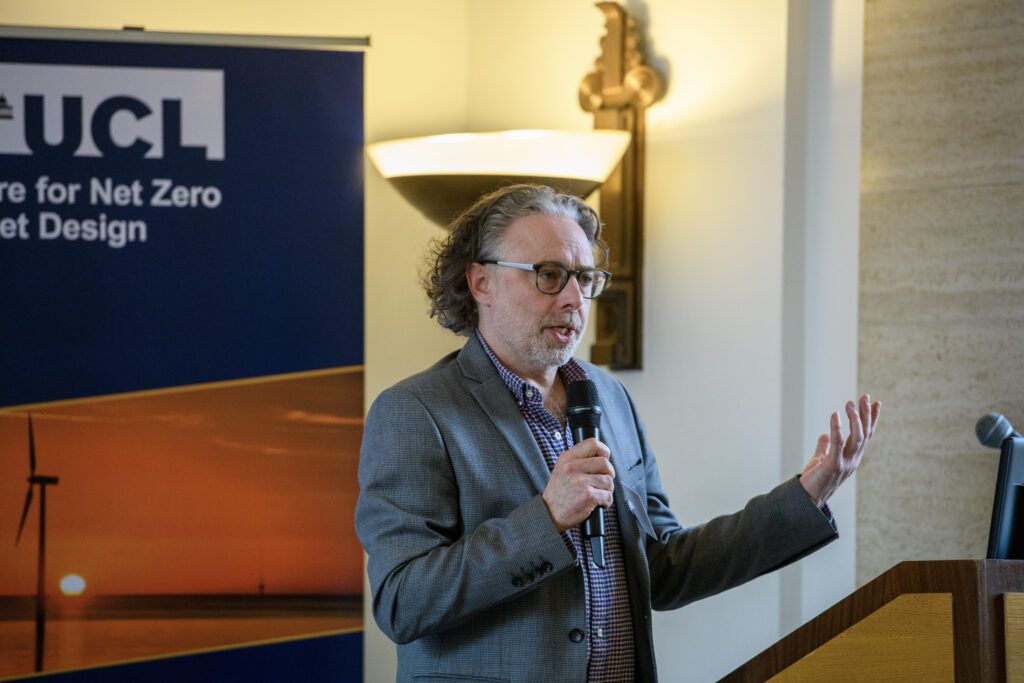
On 13 November, senior figures from across the UK’s energy sector gathered at Senate House, in Bloomsbury, for a workshop examining the implications of the government’s recent Review of Electricity Market Arrangements (REMA) decision and its impact on the post-2030 electricity market.
The event, Post-REMA Decision: Market and Incentives for Post-2030 GB Electricity, was jointly convened by the UCL Centre for Net Zero Market Design (CNZMD) and the UKERC, with support from the European Climate Foundation. It brought together around 80 senior industry professionals, policy makers, and academics to discuss how REMA outcomes may shape future market design, investment signals, and the UK’s broader net zero trajectory.
A National Market after the Rejection of Zonal Pricing
The day opened with remarks from Michael Grubb, Professor of Energy and Climate at UCL, setting out the major questions facing the sector following the decision on zonal pricing. Discussions throughout the day considered the key emerging challenges, including the balance between centralised system planning and market-based mechanisms, and the role of long-term, publicly backed investment contracts in reducing the cost of capital for low carbon technologies.
Rob Gross, Director of UKERC, highlighted the importance of open, evidence-based debate in moving the market design discussion forward, introducing the collaborative aims of the workshop, especially in the wake of the heated debate around zonal pricing earlier in the year.

The keynote address was delivered by Jonathan Mills, Director General for Energy Markets and Supply at DESNZ. He provided an overview of the REMA policy process and reflected on the government’s decision-making pathway. This was followed by a question-and-answer session led by Simon Verdi of KPMG, which explored topics such as the rationale behind the zonal pricing decision and the prospects for closer market integration with Europe.
A subsequent panel session brought together voices from across industry, government and voices representing the demand side of energy markets, offering a range of perspectives on current workstreams and future priorities for the sector. The session emphasised the importance of collaboration across different parts of the energy system in responding to the policy and investment implications of REMA.

Afternoon Workshops
The afternoon featured a series of focused workshop discussions, addressing the technical, economic and policy dimensions of the post-2030 electricity market. These covered three key topics:
The workshops featured quiet writing times, before group discussions and sharing of ideas, with a view to collating the ideas into an upcoming working paper.